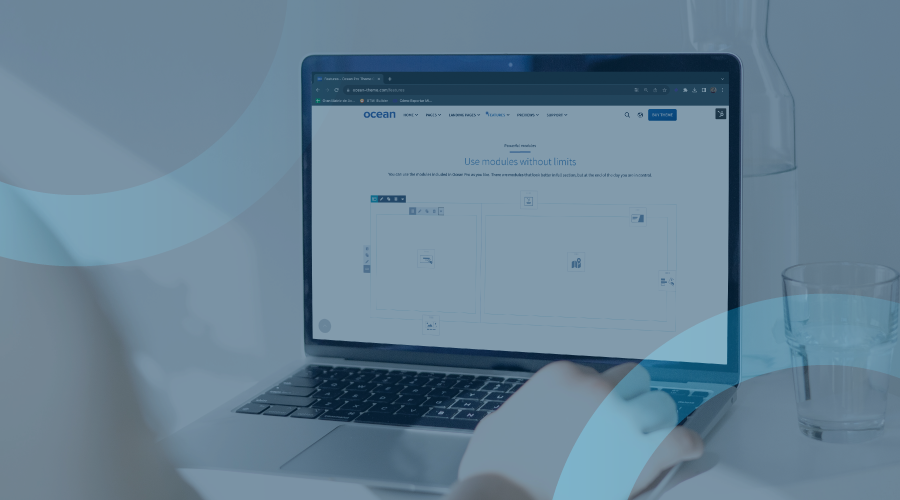Have you ever wondered what the best web browser is to optimize your website? Or perhaps how your site performs on each of them? If you're an entrepreneur, marketing specialist, or content creator, this information is crucial for you.
Join me on this journey through the fascinating world of web browsers and discover how to position your website on them to reach a wider audience and generate greater profits.
Understanding Web Browsers and Their Importance
To start, it's crucial to understand what a web browser is and why they are so important for your business. Web browsers are applications we use to access the internet, and each of them interprets the code of a web page differently.
Depending on the browser your visitors use, the appearance and functionality of your website can vary slightly. This detail might seem minor, but it actually makes a big difference in the user experience and, therefore, their decision to become a customer.
That's why it's vital for your site to be optimized to work correctly on all major web browsers.
Key Web Browsers
The web browser market is dominated by a few strong names that have established themselves as user favorites over time. Let's learn a bit more about each of them:
1. Google Chrome
Undoubtedly the most popular browser worldwide. Google Chrome stands out for its speed, security, and wide range of available extensions. Additionally, its integration with other Google services makes it extremely convenient for users.
2. Mozilla Firefox
This web browser is a solid choice for those who value privacy and customization. Firefox offers numerous configuration options and extensions, and it boasts a large community of users and developers backing it up.
3. Safari
Safari is the default web browser for all Apple devices and is well optimized for them. It stands out for its clean design and energy efficiency, making it ideal for MacBook users looking to extend their laptop's battery life.
4. Microsoft Edge
Edge is Microsoft's web browser, which has replaced Internet Explorer. It's much faster and more secure than its predecessor, deeply integrated with the Windows 10 operating system, and other Microsoft services.
5. Opera
Less known, Opera offers unique features like a built-in ad blocker and a free VPN. It also shines with its "power saving" mode designed for laptop users.
6. Brave
A relatively new web browser that emphasizes privacy and security. It automatically blocks trackers and ads, which can lead to faster page loading.
Moreover, Brave offers a "private browsing with Tor" option, adding an extra layer of privacy protection.
7. Vivaldi
Created by former Opera developers, Vivaldi is known for its high degree of customization. You can adjust almost everything in this web browser, from appearance to how tabs are handled. It also features advanced functionalities like web annotations and a side panel view.
8. Tor Browser
Preferred by those seeking online anonymity, the Tor Browser hides your identity by redirecting your traffic through a network of servers worldwide. It also blocks many trackers and, by default, doesn't save any browsing history.
9. Chromium
This open-source web browser is the foundation for Google Chrome. It shares many of Chrome's features but without some of the tracking features Google has added.
10. DuckDuckGo
Primarily known as a privacy-focused search engine, DuckDuckGo also offers a mobile web browser with similar privacy protection features. It blocks trackers and provides a privacy rating for each website you visit.
Positioning Your Website on Web Browsers
Achieving good positioning on web browsers is a fundamental part of any SEO strategy.
Each browser has a different algorithm, which means SEO optimization must be tailored for each type. But don't worry, with the right tools and techniques, you can ensure your website is visible and appealing on all of them.
Here are some effective strategies for positioning your site on web browsers:
Multiplatform Optimization
First and foremost, your website should be compatible and look good on all major browsers. You'll need to test and adjust your site on Chrome, Firefox, Safari, Edge, and other less common but relevant browsers. Tools like Browsershots can be very helpful, allowing you to see how your site looks on different web browsers and operating systems.
Focus on SEO
A strong SEO strategy is essential for improving your positioning on any browser. This involves using relevant keywords related to your content, having high-quality internal and external links, and ensuring your site loads quickly.
Responsive Design
A responsive design ensures your website looks and works well on any device, regardless of its screen size. This not only enhances the user experience but is also a factor search engines consider when ranking websites.
If your website looks and functions well on mobile devices, it's more likely to have a higher ranking in search results.
Site Security
Modern web browsers prioritize security as a crucial factor. Ensure your site is secure by obtaining an SSL certificate, changing your URL from HTTP to HTTPS.
Search engines prioritize secure websites, and users also feel more comfortable visiting them.
User Experience
Lastly, user experience is a key factor in web positioning. A site with intuitive navigation, quality content, and an attractive interface will keep visitors on your page longer, which can improve your search engine ranking.
Remember that while these tips can help improve your positioning on web browsers, SEO is an ongoing process that requires patience and consistent effort. But don't worry! With dedication and strategy, you can achieve top positions on any browser.
HubSpot's Ocean Theme for Your Website
Choosing the right theme for your website can significantly impact its performance and ranking on search engines. A good theme not only makes it look appealing but can also improve its loading speed, accessibility, and compatibility with different browsers.
One excellent option is HubSpot's Ocean Theme, which is highly customizable. You can adjust it to perfectly match your brand and needs. Regardless of your brand or business's specific needs, Ocean Theme can adapt to them. From colors and fonts to the arrangement of page elements, you can create all aspects of your website intuitively, without coding knowledge.
Ocean Theme isn't just aesthetically pleasing; it's also designed for high performance. Its code is optimized to ensure your site loads quickly, essential for keeping users engaged and improving your search engine ranking. A fast-loading site also enhances the user experience, which can lead to higher conversion rates.
Conclusion
Navigating the digital world isn't always straightforward, from understanding the differences between web browsers to finding the right positioning strategy for each one, it can seem like an overwhelming task.
Fortunately, with the right approach and tools, you can effectively position your website on all web browsers and increase its visibility to reach a broader audience.
Here at Media Source, we're ready to assist you on this journey. Our experts in digital marketing, content marketing, inbound marketing, and SEO are available to teach you how to implement the best strategies and provide you with the most suitable tools for your business.
If you're interested in using Ocean Theme for your website, feel free to get in touch with us. We're passionate about helping companies achieve their goals and grow in the digital world.

.png?width=319&height=267&name=gtmetrix_2023%20(1).png)




